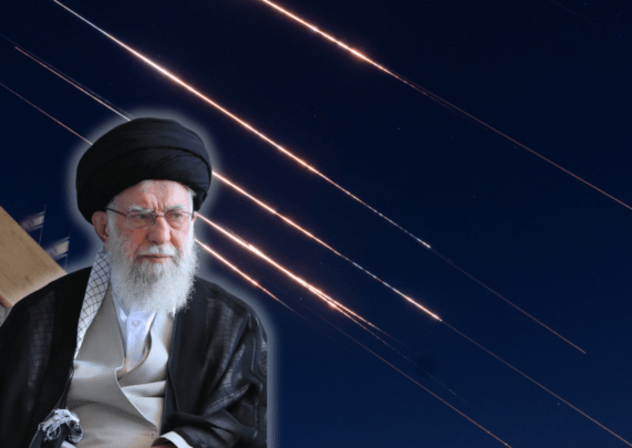Hollow Threats, Hidden Stockpiles: Inside the Collapse of Iran's Façade

A Regime on the Brink: Nuclear Defiance and Global Isolation Expose Deep Cracks in Tehran
Recent statements from international watchdogs and a series of destabilizing events have cast a harsh spotlight on the Islamic Republic of Iran, systematically dismantling its long-held narrative of a peaceful nuclear program and a stable grip on power. While Tehran continues to publicly assert its “inalienable right” to nuclear enrichment for peaceful purposes, a consensus is forming among global intelligence agencies, nuclear experts, and even its own allies that the regime's claims are increasingly detached from a grim and volatile reality. The combination of overt nuclear defiance, brutal internal crackdowns, and crumbling international support paints a picture of a regime whose aggressive posture may be a desperate gambit to mask its profound vulnerabilities.
The Unkillable Nuclear Program
At the heart of the international crisis is the sheer persistence of Iran's nuclear ambitions, a threat that multiple sources confirm has not been neutralized. Despite past efforts and claims of 'obliteration,' the core of the program remains dangerously intact. Rafael Grossi, the Director General of the International Atomic Energy Agency (IAEA), has become the most credible and persistent voice of warning. In a series of interviews with major news outlets, Grossi has repeatedly stated that Iran possesses the knowledge and industrial capacity to restart its uranium enrichment to high levels 'in a matter of months,' not years. This assessment fundamentally undermines any narrative that the danger has been contained. According to IAEA officials, the technical know-how, once acquired, cannot be bombed away, creating a perpetually recurring threat that exists independently of any single facility.
This reality is compounded by Tehran’s own brazen defiance. In a stark declaration before the United Nations, Iran’s ambassador vowed that the nation's enrichment activities 'will never stop,' framing it as a non-negotiable right. However, this assertion of rights was made in the same breath as acknowledging that the Iranian parliament has formally suspended all cooperation with the IAEA. Crucially, this means international inspectors are barred from key nuclear sites. This dual strategy—publicly proclaiming peaceful intent while actively obstructing the very mechanisms designed to verify it—is seen by Western intelligence analysts as direct evidence that the program has undeclared military dimensions it needs to hide. The logical question being asked in Western capitals is simple: if the program is truly peaceful, why block the inspectors?
The Brutality Behind the Rhetoric
The regime's credibility is not only being eroded by its nuclear duplicity but also by its brutal treatment of its own people. The recent Israeli strike on Tehran's notorious Evin Prison provided a horrifying glimpse into the state's repressive apparatus. Reports have now confirmed a staggering death toll of 71, a figure that includes not just prisoners but also visiting family members and prison staff. The Evin facility has long been infamous as the primary holding center for political dissidents, journalists, academics, and anyone deemed an enemy of the state.
In a telling justification for the strike, Israeli officials framed the attack as a necessary strike against 'government repression bodies.' This statement explicitly links Iran's internal oppression with its external military posture, reinforcing an image of a regime that uses violence as its primary tool of governance, both at home and abroad. For opposition groups, the event at Evin is not an isolated tragedy but a symbol of the state's fundamental character—a regime that holds its own citizens hostage to its radical ideology.
A Crumbling Alliance and Growing Isolation
While projecting an image of strength, Iran appears increasingly isolated on the world stage as its key allies prove unreliable when it matters most. A detailed analysis published in The Atlantic concluded that the so-called 'Iran-China-Russia Axis Crumbles When It Matters,' noting the 'surprisingly muted' and largely rhetorical reactions from Beijing and Moscow in the wake of recent strikes against Iranian assets. This lack of substantive support suggests that Iran’s strategic partners are unwilling to be drawn into a direct conflict on its behalf, viewing Tehran as more of a liability than an asset. This isolation leaves the regime exposed, without the powerful diplomatic or military shield it purports to have.
This growing isolation is being actively exploited by Western powers. In a move that would have been unthinkable just a few years ago, British Members of Parliament recently hosted the deposed shah's son, Reza Pahlavi, for public discussions centered on a singular topic: planning for the 'collapse of the current regime.' Such open engagement with prominent opposition figures on foreign soil is a direct challenge to the legitimacy of the government in Tehran, signaling that Western powers are now seriously contemplating, and perhaps encouraging, a post-Islamic Republic future for Iran.
This is all underpinned by the most dangerous secret of all: Iran's unaccounted-for stockpile of highly enriched uranium. The IAEA's Rafael Grossi continues to raise urgent concerns about the unknown location and status of Iran's weapons-potential material enriched to 60% purity—a level for which there is no credible civilian use. This lack of accountability for material a short step away from bomb-grade fuel invalidates any remaining pretense of a transparent, peaceful program. As long as this stockpile remains hidden, every claim made by Tehran will be viewed through a lens of profound suspicion, leaving the world to wonder what the regime is building in the shadows.

